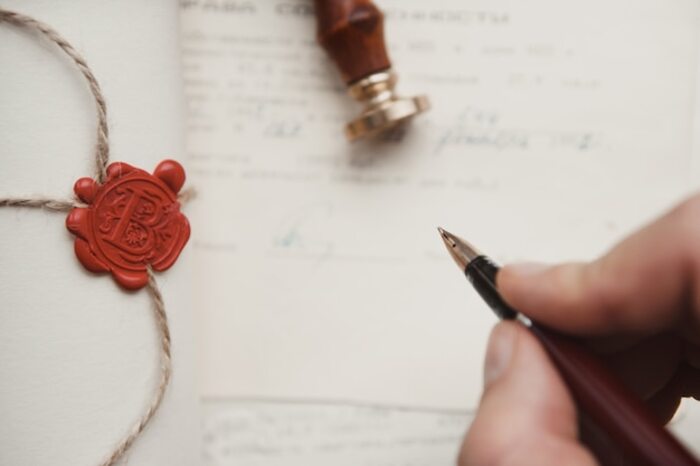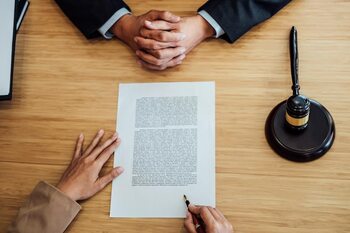Keys to validate the authenticity of a legal document.

Validating the authenticity of a legal document is essential to protect your rights and prevent fraud. In a world where documents can be easily forged, knowing the keys that ensure the veracity of a document becomes an invaluable tool. This article will guide you through the essential elements you should consider when evaluating any legal document, thus ensuring that your transactions are safe and reliable. Do not let misinformation work against you; discover how to verify what really matters.
Importance of authenticity in legal writings
The authenticity of legal writings is crucial, as it ensures that agreements and contracts reflect the true intention of the parties involved. Without this authenticity, documents can be subject to manipulations or disputes that compromise the validity of the agreed rights and obligations. Trust in a legal writing is based on its ability to be recognized as genuine by any entity, whether a court, a financial institution, or a governmental authority. Therefore, it is essential to ensure that each signature, seal, and piece of information contained in the document meets the required standards.
Furthermore, the lack of authenticity can lead to severe legal consequences. In situations where a document is presented as valid but turns out to be false, the affected parties may face significant losses or even legal action for fraud. This not only impacts individual persons but also businesses and institutions that rely on legitimate documents to carry out important transactions. Therefore, understanding how to validate the authenticity of legal documents not only protects your immediate interests but also strengthens the integrity of the legal and business system as a whole.
2. Key elements to identify a valid writing
To identify a valid writing, it is essential to pay attention to certain key elements that guarantee its authenticity. First, the signature of the notary or witnesses is a fundamental aspect; without these signatures, the document lacks legal validity. Additionally, it is important to verify that the notary is duly accredited and in office at the time of the signature. This can be checked through the corresponding registry in the relevant government agency. The presence of official seals also plays a crucial role, as they indicate that the document has been properly protocolized and has the necessary authority.
Another essential element is the date of issuance of the document, as it must be consistent with the facts described in the writing. A significant time lag may raise doubts about its legitimacy. Likewise, one must observe whether the content of the writing complies with current legal regulations and whether it is drafted in clear and precise terms. Ambiguity in the language could lead to misunderstandings or future disputes. By considering these aspects, you will be better prepared to discern between authentic documents and possible frauds, thus ensuring your rights and protecting your legal interests.
3. How to verify signatures and notary seals
To verify the authenticity of signatures and notarial seals, it is essential to become familiar with the elements that characterize these components. Notarial signatures often have a distinctive style that can vary from one notary to another; therefore, it is advisable to compare the signature in question with others previously signed by the same notary. Additionally, notarial seals must include specific information, such as the name and registration number of the notary, as well as their jurisdiction. By observing these details, you will be able to determine if the document has been effectively validated by a competent authority.
Another crucial aspect is the possibility of verifying the legitimacy of the notary in question. Many states or countries have public registries where one can check if a notary is properly accredited and in practice. This verification not only provides peace of mind about the validity of the seal but also ensures that the notary operates within the corresponding legal framework. If you find inconsistencies between the information provided in the document and what appears in the official registry, this could be a red flag regarding the authenticity of the legal writing.
4. The role of the notary public in the validation of deeds
The notary public plays a crucial role in the validation of deeds, acting as a guarantor of the authenticity and legitimacy of legal documents. Their main function is to certify the identity of the parties involved in a transaction, as well as to ensure that they understand the content and implications of the document they are signing. In doing so, the notary not only prevents fraud but also adds an additional level of trust for the parties, as their intervention provides greater legal solidity to the deed. Furthermore, the notary public has the responsibility to maintain a meticulous record of each notarial act they perform, which serves as documentary evidence in case of future disputes. This record acts as a safeguard for all transactions conducted before them, allowing access to verifiable information about the deeds in question. Therefore, having a notary public at the time of formalizing any legal deed is not only advisable but essential to ensure that each document is authentic and duly validated within the corresponding legal framework.
5. Digital tools to verify legal documents
In the digital age, having tools that facilitate the verification of legal documents has become essential. There are various online platforms that allow users to check the authenticity of deeds and other legal documents by using official databases and public records. These tools not only provide quick access to critical information but also ensure greater transparency in transactions, which is crucial for preventing fraud and protecting your legal interests. By using these technologies, you can verify the validity of a document before entering into any legal commitment.
Additionally, many of these digital tools offer additional functionalities, such as the analysis of signatures and official seals, which allows for the detection of possible alterations or forgeries in documents. Some platforms incorporate artificial intelligence to compare specific characteristics of the document with recognized standards, thus providing an extra layer of security in your validation process. Integrating these tools into your routine when handling legal documents will not only save you time and effort but also significantly increase your confidence in the transactions you conduct. This way, you will be better prepared to act in the event of any issues related to fraudulent documents.
6. Common mistakes when evaluating writings and how to avoid them
When evaluating legal documents, it is common to fall into certain mistakes that can compromise the authenticity of the document and, therefore, your rights. One of the most frequent errors is failing to verify the identity of the parties involved. Often, it is assumed that the name on the document corresponds to a legitimate person without corroborating their identification through official documents. To avoid this, always request valid identifications and verify that they match the information present in the document. Additionally, ensure that all signers are present and give their consent clearly for the document to have full validity. Another common mistake is overlooking the technical details in the drafting of the document. Legal documents must follow a specific format and contain accurate information about the properties or assets involved. Ignoring important clauses or using inappropriate terminology can lead to future legal problems. To avoid such inconveniences, consider consulting a lawyer or a professional in the legal field before validating any document. Their expertise will help you identify possible irregularities and ensure that the document complies with all necessary regulations to be considered authentic and effective.
The lack of follow-up is also a common mistake; after signing the document, many people forget to register the deed with the relevant authorities or do not carry out the necessary steps to formalize it. It is essential to ensure that all subsequent steps are properly fulfilled to strengthen the validity of the agreement and protect your investment.
7. Legal consequences of using false deeds
The use of false deeds carries serious legal consequences that can affect both those who create them and those who use them. Document forgery is a serious crime that can result in criminal penalties, including significant fines and prison sentences. Furthermore, those involved in transactions based on fraudulent deeds may face civil litigation, where they could be sued for damages. This not only represents a financial burden but can also irreparably damage the reputation of the individuals or companies involved.
In addition to the direct repercussions on legal liability, using false deeds can lead to additional problems in the financial and asset realm. If a fraudulent deed is used to acquire properties or assets, the true owner has the right to claim what legitimately belongs to them. This can result in lengthy legal processes and a possible loss of the property acquired under deceptive conditions. Therefore, validating the authenticity of any legal deed is not only crucial to protect your immediate interests but also to safeguard your future against potential legal complications arising from the involuntary use of forged documents.
8. Useful resources and contacts for validating writings in Costa Rica
When it comes to validating deeds in Costa Rica, having reliable resources and contacts is essential to ensure the authenticity of the documents. One of the first instances you should consider is going to the Registro Nacional, where you can consult information about the property and verify if the deed is properly registered. This registry provides access to data about legal owners, any encumbrances that may exist on the property, and any other relevant annotations that ensure the transparency of the process. Additionally, many public notaries have direct access to this information and can assist you in the verification.
Another valuable resource is the associations and professional colleges related to law in Costa Rica. These organizations often provide legal advice and can recommend lawyers or notaries who are experts in the real estate area to help you review the deed with attention to detail. It is also advisable to use digital platforms that provide document validation services or online legal consultations, where you can obtain additional guidance on how to proceed with specific questions. Maintaining a network of trusted contacts will not only facilitate the validation process but will also provide you with greater security in your future legal transactions.



